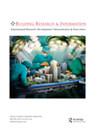建筑业采用社会采购政策的驱动因素:澳大利亚视角
IF 3.7
3区 工程技术
Q1 CONSTRUCTION & BUILDING TECHNOLOGY
引用次数: 2
摘要
摘要建筑业是许多国家社会采购政策的主要关注点。然而,对该行业采用社会采购政策的驱动因素的研究很少。为了帮助解决这一研究空白,本文报告了对15名在澳大利亚建筑业实施社会采购的社会采购专业人员的半结构化访谈结果。结果显示,与环境可持续性倡议的实施有着有趣的历史相似之处。然而,社会采购尚未正常化。行业实践中似乎存在高度的同质性,尽管有相当大的创新空间,但这受到澳大利亚社会采购政策的规定性和“自上而下”性质的限制,这使得组织很难“自下而上”应对实际的社区需求。得出的结论是,社会采购政策创造社会价值的巨大潜力目前取决于少数新兴社会采购专业人员在企业内部的努力,他们正在单独挑战许多制度规范和做法,这些规范和做法破坏了这些政策在建筑业的实施。本文章由计算机程序翻译,如有差异,请以英文原文为准。
The drivers of social procurement policy adoption in the construction industry: an Australian perspective
ABSTRACT The construction industry is the primary focus for social procurement policies in many countries. However, there has been little research into the drivers of social procurement policy adoption in this industry. To help address this gap in research, this paper reports the results of semi-structured interviews with fifteen social procurement professionals who are implementing social procurement into the Australian construction industry. Results reveal interesting historical parallels with the implementation of environmental sustainability initiatives. However, social procurement has yet to become normalized. There appears to be a high level of homogeneity in industry practice and while there is considerable scope for innovation, this is constrained by the prescriptive and ‘top-down' nature of social procurement policies in Australia which make it difficult for organizations to respond ‘bottom-up’ to actual community needs. It is concluded that the considerable untapped potential of social procurement policies to create social value currently depends on the intrapreneurial efforts of a small number of emerging social procurement professionals who are individually challenging the many institutional norms and practices which undermine the implementation of these policies into the construction industry.
求助全文
通过发布文献求助,成功后即可免费获取论文全文。
去求助
来源期刊

Building Research and Information
工程技术-结构与建筑技术
CiteScore
8.60
自引率
7.70%
发文量
43
审稿时长
>12 weeks
期刊介绍:
BUILDING RESEARCH & INFORMATION (BRI) is a leading international refereed journal focussed on buildings and their supporting systems. Unique to BRI is a focus on a holistic, transdisciplinary approach to buildings and the complexity of issues involving the built environment with other systems over the course of their life: planning, briefing, design, construction, occupation and use, property exchange and evaluation, maintenance, alteration and end of life. Published articles provide conceptual and evidence-based approaches which reflect the complexity and linkages between cultural, environmental, economic, social, organisational, quality of life, health, well-being, design and engineering of the built environment.
 求助内容:
求助内容: 应助结果提醒方式:
应助结果提醒方式:


